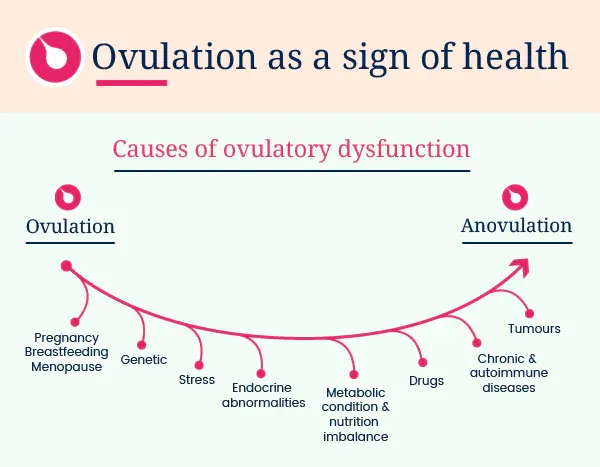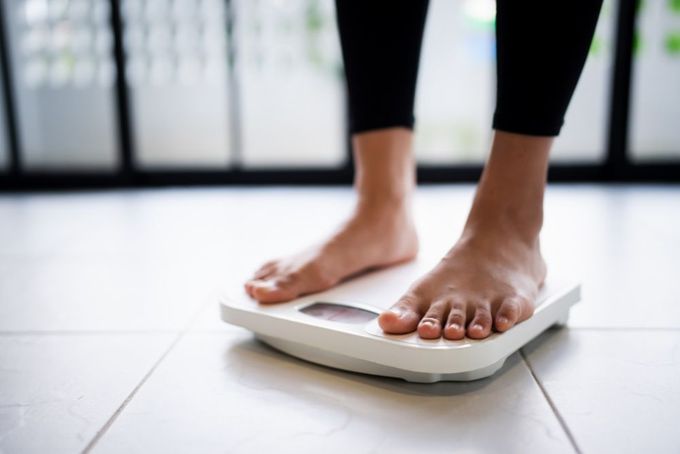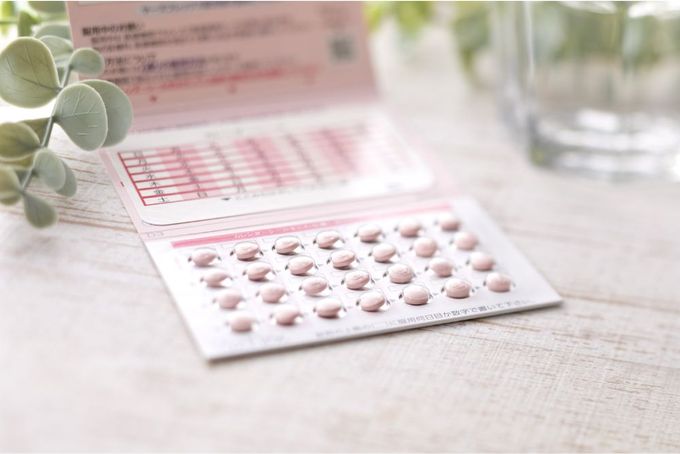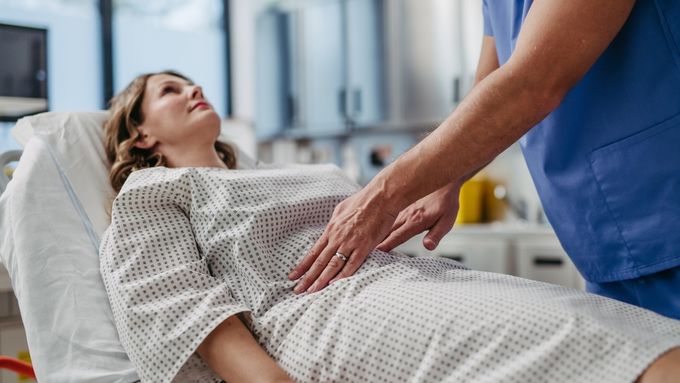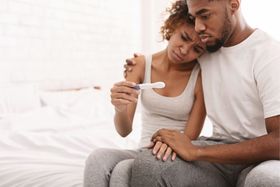Possible Reasons for Insufficient Ovulation or Anovulation
Updated August 25, 2025
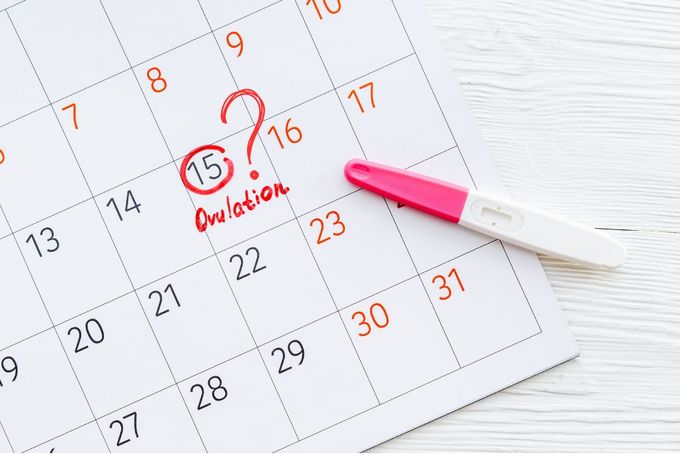
When we discuss cycles at Tempdrop, we often talk about how beneficial ovulation is - which it truly is! But there are also times, both natural and less optimal, when you may not ovulate. We call this anovulation (lack of ovulation) or insufficient ovulation. Let’s talk about them!
Graphic information from Dr Pilar Vigil MD, PhD, FACOG and RHRI
Natural Life Events
A handful of life events may cause anovulation regularly throughout a woman’s life. One is pregnancy and the second, for many, is breastfeeding. Hormones that are at play during these times suppress ovulation.
IMPORTANT: It’s important to note that you shouldn’t rely on breastfeeding alone to prevent pregnancy due to lack of ovulation. There are specific requirements that need to be met to naturally avoid pregnancy while breastfeeding, which typically can't be used past 6 months postpartum.
The other life event that prevents ovulation, one which every woman will eventually experience, is menopause. Menopause is defined as the time when a woman has not had a period for at least 12 months and has reached the end of her reproductive years.
Genetic
A variety of genetic variations can predispose a woman to have periods of anovulation. These include genetic diseases, as well as gene mutations such as the mutation of the FMR1 gene. If this is a concern you have, you should discuss it with your doctor.
Stress
Most women likely have experience with stress causing an abnormality in their cycles. We know that a large test in school, a tight work deadline, a close friend or family member’s sickness, or any variety of things causing stress have the ability to affect our cycles, whether this be for a single cycle or even a few cycles. This is largely due to cortisol being released more constantly in larger quantities than usual. You can read more about the relationship between stress and your cycle here, but suffice it to say - physical and mental stress can definitely lead to anovulation.
Endocrine & Metabolic
Endocrine and metabolic conditions are often closely related, and both have the possibility of causing cycle abnormalities. Endocrine abnormalities cause imbalances in hormones, so these conditions include hyperandrogenism, as well as both hypo and hyperthyroidism (these are also linked closely to autoimmune diseases, discussed briefly below).
Metabolic conditions, which, as mentioned above, are often closely related to endocrine issues, are also often the cause of anovulation. This includes insulin resistance (often present in those with PCOS), eating disorders, and being over- or underweight.
As endocrine and metabolic functions are some of the key aspects that keep the body working smoothly, it's no wonder that these can cause anovulation!
Nutrition & Medications
Certain drugs are also known to suppress ovulation. Most notably, we should mention hormonal birth control, as the purpose of many forms of hormonal birth control is to suppress ovulation.
However, there are also some other drug types that are known to cause anovulation, including antidepressants, antipsychotics, antiepileptics, and proton-pump inhibitors (which may be used for more severe cases of acid reflux). These drugs modulate core functions within the body, and it’s always worth asking your provider if a new medication may affect your cycle. Once you know this, you can make informed decisions about the benefits of taking or not taking them with the help of your provider.
Autoimmune, Chronic, & Tumors
A large number of autoimmune diseases and other chronic diseases can may result in anovulation. Some of the most common autoimmune diseases in women include Rheumatoid arthritis, Hashimoto's hypothyroidism, and Sjogren's syndrome, but there are many out there that may cause cycle disturbances.
Other chronic conditions, such as allergies or irritable bowel syndrome (IBS) can also affect your body's balance. Tumors in your reproductive tract or that affect hormone production may also cause anovulation or other cycle abnormalities.
Overall, there are many potential causes of anovulation that it may be difficult to pinpoint the actual cause. And if it's just an occasional instance of anovulation, it's likely, not important to identify the exact cause. However, if you experience anovulation frequently, you and your provider may find this information incredibly useful!
